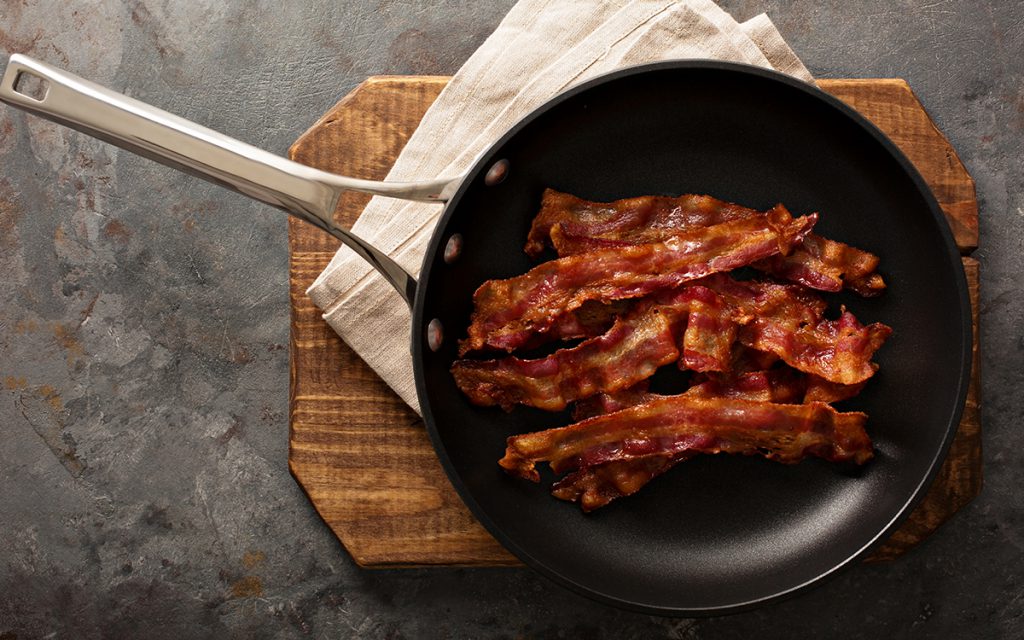The ketogenic diet is a high-fat, low-carb diet that is known for yielding significant fat and weight loss results. Keto diet success involves following specific macronutrient guidelines in order to induce a metabolic state called ketosis. While in ketosis, the body shifts from burning carbohydrates for fuel to burning fat.
A common misconception about this popular diet is the idea that as long as you meet the daily macro requirements, you can eat whatever you want.
Because of this myth, some keto dieters choose to follow a “dirty” version of the keto diet that involves filling up on low-carb processed foods, like diet sodas, pork rinds and cheese whiz.
While you may enter ketosis and shed a few pounds on the dirty keto diet, it can lead to negative health effects like binge eating, dietary relapse, and nutrient deficiencies. For this reason, it’s best to stick to a clean keto diet that consists of nutritionally-dense whole foods. Let’s take a closer look at the dangers of the dirty keto diet.
Looking to go keto? Find clean keto recipes on Mealplan. Get your personalized nutrition plan today.

Dirty Keto Prioritizes Weight Loss Over Health
If you enter ketosis and create a caloric deficit while following a dirty keto diet, then you’ll probably lose a few pounds. However, your weight isn’t the only indicator of your overall health.
A balanced diet that includes plenty of vegetables and unprocessed foods is crucial for maintaining the health of your immune system, skin, muscles, and bones. Your diet also has a direct impact on your energy levels, brain function, and sleep patterns.
Dirty keto can also negatively affect your health by making you sick. This diet includes a lot of inflammatory foods like processed meat, snacks, and refined vegetable oils, that can increase your risk of developing conditions like heart disease and cancer. Overall, the dirty keto diet promotes a quick fix for weight loss rather than a long-lasting lifestyle change.

Dirty Keto Isn’t Sustainable
It’s common to switch up your diet when you’re trying to attain health goals like weight loss and muscle-building. When deciding which dietary lifestyle is the best for meeting your long-term health goals, sustainability is one of the most important factors to consider. If you choose a nutrition plan that is unsatisfying and difficult to stick to, then it will be difficult to maintain any results you achieve.
A dirty keto diet that relies heavily on unhealthy food sources like fast food, processed dairy, and bacon is a prime example of an unsustainable nutritional lifestyle.
While these choices may seem convenient and satisfying in the beginning, eating this way starves your body of the vital nutrients that tend to come from eating a more balanced diet. It’s also difficult to get enough fiber and healthy fats into your diet on dirty keto, making it harder to control cravings and feel satiated after meals.
Because of this, many dirty keto dieters end up experiencing hunger and fatigue after a few weeks. These symptoms can trigger carb and protein binges that knock the body out of ketosis and cause unwanted weight gain.
Following the “dirty” version of the keto diet can sabotage your health and wellness goals. If sticking to a clean keto diet is not sustainable for you, there are several other healthy dietary lifestyles that you can explore. But, no matter which dietary lifestyle you choose to follow, consuming plenty of unprocessed, whole foods is always the best option.


